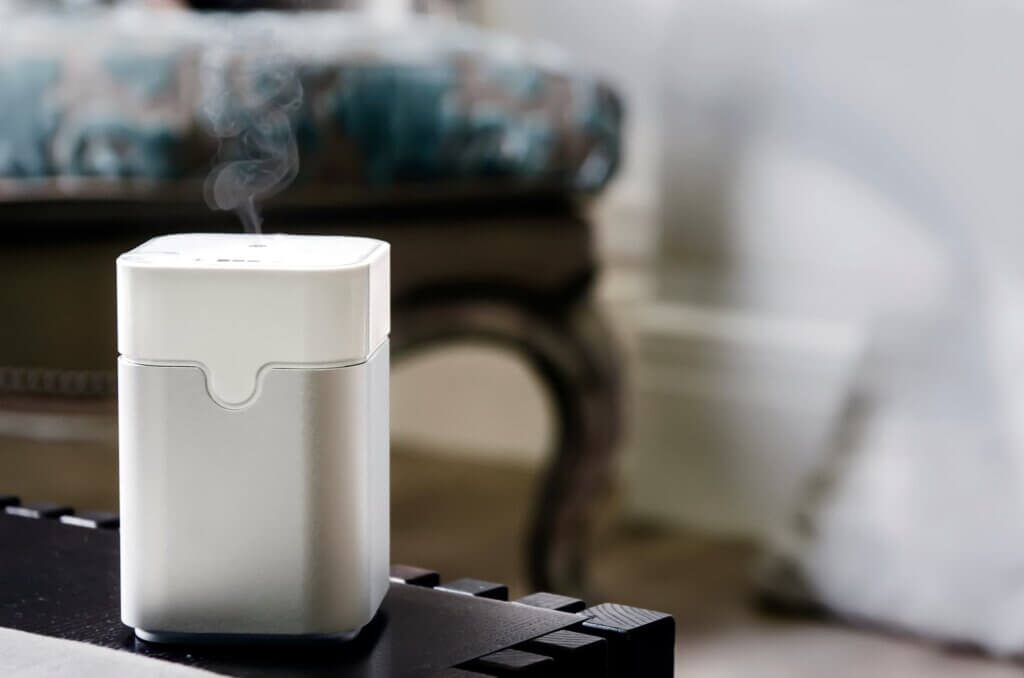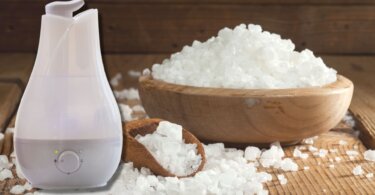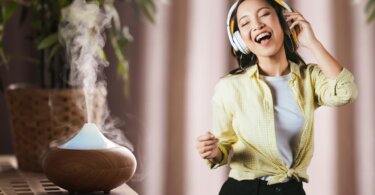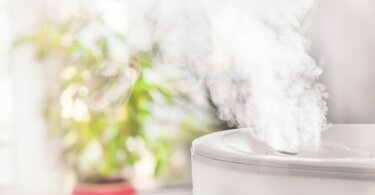So, you’re here because you’re curious about what might happen if a humidifier runs without water. Well, let me tell you – it’s not pretty.
Essentially, the motor in a humidifier is designed to circulate and vaporize water to increase the humidity in the air. So if there’s no water in the reservoir, the motor continues to spin and circulate air without anything to vaporize.
In this article, I will explore the potential consequences of running a humidifier without water for a long time.

Damaged Humidifier
Without enough water, the humidifier’s motor will run dry and overheat, leading to potential damage or even a fire hazard. In addition, the lack of moisture can cause unwanted health effects like dryness in the eyes and skin.
An insufficient water supply may also result in the production of mineral deposits and mold growth. Therefore, it is important to regularly inspect your humidifier for water leaks, broken parts, or clogging issues to ensure it functions properly as intended.
Maintaining optimal humidity levels by using your humidifier correctly can be of great benefit to your respiratory health and overall physical well-being.
Decreased Air Quality
When a humidifier runs without water, it can decrease air quality in the room. This is because humidifiers work by adding moisture to dry air. This can alleviate symptoms such as dry skin, itchiness, and stuffy sinuses.
If there is not enough water in the unit’s reservoir tank, then the humidifier will continue running but release only cool, dry air back into the room. This can cause an increase in respiratory infections, allergies, and other respiratory issues.
Humidifiers that are not properly cleaned and maintained become breeding grounds for bacteria. It is important to always ensure your humidifier has an adequate water supply before usage. Clean your unit thoroughly in order to keep dirt and grime from clogging up the system.
Related article: What Should I Set My Humidifier To?
Unpleasant Odors
The occurrence of unpleasant odors when a humidifier runs without water is not uncommon. The root cause of this problem is the build-up of bacteria, mold, and mildew within the humidifier’s water tank.
When the humidifier operates without water, these microbes continue to thrive in the warm and damp environment, resulting in a musty smell emanating from the device. It is essential to clean and disinfect the humidifier’s water tank periodically to prevent this issue from occurring.
This can be done by following the manufacturer’s instructions. You can also use a mixture of vinegar and water to clean out any residual bacteria or mold spores.
Regular maintenance of your humidifier will ensure it operates safely and effectively.
Fire Hazard
Humidifiers emit moisture into the air by evaporating water from their tanks. However, when there is no water in the tank, the heating mechanism of the device can overheat and eventually catch fire.
Such an event can cause extensive damage to homes or commercial properties and may even lead to severe injuries.
Therefore, it’s imperative that humidifiers are adequately maintained and checked regularly for proper functioning before use.
Experts recommend unplugging humidifiers when they are not in use, cleaning them regularly following manufacturer guidelines, and replacing filters as required.
To avoid a fire hazard risk altogether, consider investing in automatic shutoff models with devices that automatically switch off once the water reservoir depletes.
Purchase units with humidity level sensors so that they won’t run until there is enough water to support operation safely.
Mineral buildup
If a humidifier runs without water, it can lead to mineral buildup, which can negatively impact the air quality. Mineral buildup occurs when minerals from hard water are left behind as vapor evaporates from a humidifier.
Over time, this can clog the device’s misting mechanism and reduce its effectiveness in adding moisture to the air.
Mineral buildup can create an environment for bacteria to grow, which can cause health hazards if released into a room or picked up by occupants of the space.
To prevent this problem, regular cleaning of the humidifier is essential. Many models feature detachable reservoirs or base sections that make cleaning easier.
However, the best kind of water for a humidifier is distilled water instead of tap water and this will also prevent mineral buildup because it lacks minerals found in hard water.
Adopting these measures ensures not only optimal performance but also maintains good indoor air quality for healthy living spaces with ultimate comfort.
Tip! Check out my personal selection of Best Humidifiers for Hard Water
What Happens If a Humidifier Runs Out of Water While You’re Sleeping?
If a humidifier runs out of water while you’re asleep, it could cause several potential risks.
First, the lack of moisture in the air that the humidifier was originally providing may result in dry skin or respiratory tract irritation.
Secondly, if this occurs with an ultrasonic humidifier, the device could continue to vibrate without any water present, which can generate heat and damage the unit.
If left unnoticed for an extended period of time, this can even start a fire.
Lastly, if you set up your device close to some electronic devices prone to damage from excess moisture buildups, then there are chances of creating long-term damage. So ensure that your humidifier is full before sleeping for sound sleep and optimum health benefits.
Also read: Can You Place a Humidifier Near Electronics Without Damage?
Wrap Up
In conclusion, if a humidifier runs without water for an extended period, it can have damaging effects on indoor air quality and the appliance itself.
Without water, a humidifier can become a breeding ground for bacteria and mold, which poses potential health risks to occupants.
On top of that, running a humidifier without water can damage internal components such as the motor and fan.
To avoid these consequences, it’s recommended you turn off the device when not in use.
Refill it with distilled water as soon as possible to ensure its optimal function. This will promote healthy humidity levels in your space.





Leave a Comment